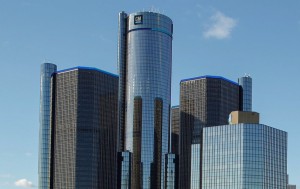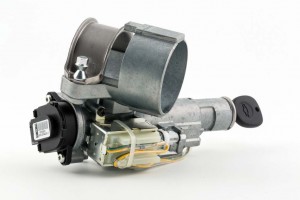General Motors Co. is facing another expensive day in court on the massive and complex litigation related to the faulty ignition switches found in millions of cars built by the company during the first decade of the 21st century.
The potential liability from a trial slated to start this week tops $1 billion in stock to address claims related to the malfunctioning ignition switches, according to the Wall Street Journal.
The report noted that the trial, set to start Monday in a Manhattan federal bankruptcy court, centers on whether General Motors can block a deal reached in August between ignition-switch plaintiffs and a trust representing creditors of so-called Old GM, the assets the automaker left behind in 2009 as part of its $50 billion government rescue and restructuring.
The terms of the August deal contemplated forcing General Motors to pay the Old GM trust $1 billion in stock.
(GM agrees to $120m ignition switch scandal settlement. Click Here for the story.)
The defect, which can cause engines to stall and keep airbags from opening in an accident, has been linked to 124 deaths and 275 injuries. GM’s bill for fines, penalties, recalls and other damages now tops $2.5 billion, including some $120 million paid out this past fall.
The issue appeared in 2001 in various models including Chevrolet Cobalt, Impala and Malibu, and since 2014 has forced GM to recall more than 30 million vehicles.
GM also has been defending itself against hundreds of lawsuits and efforts to use bankruptcy law as a shield have only been partially successful
(Click Here for details about GM sidestepping possible $1b ignition switch settlement.)
This past April, the U.S. Supreme Court let stand a lower court ruling that blocked GM’s effort to halt many private lawsuits. The court’s decision not to hear GM’s arguments meant that a ruling by the Second U.S. Circuit Court of Appeals could not be reversed.
The Second Circuit found that GM should have disclosed existence of the ignition-switch defect when its operations were “sold” during the 2009 bankruptcy. Under bankruptcy law, a company’s operations can be sold “free and clear” of past liabilities, blocking future lawsuits over claims that arose before the sale but general rule does apply in cases were the critical information is withheld from creditors, the Second Circuit said.
(To see more about GM and the ignition lawsuits, Click Here.)
The decision exposed GM to hundreds of additional wrongful death and personal injury cases. However, each plaintiff seeking damages from GM has to muster sufficient evidence in court that they had suffered some kind of injury and those cases are still being litigated in federal courts around the country.



So I was one in one of the cars in the recall, month long coma TBI enough said. But this company first lied to my attorney skated free in 2009 just to say well if you need more in 2014 with Feinburg and it was us but were pre bank you cant sue heres some more money but we are going to subtract your first settlement on lies. I find it hard to believe this will pan out unsigned agreement. Or do I just sound crazy